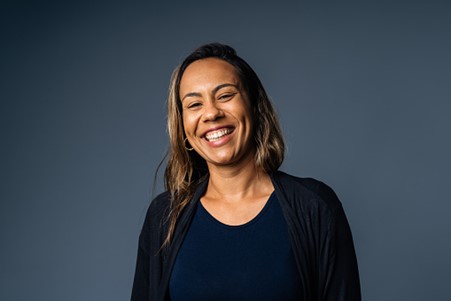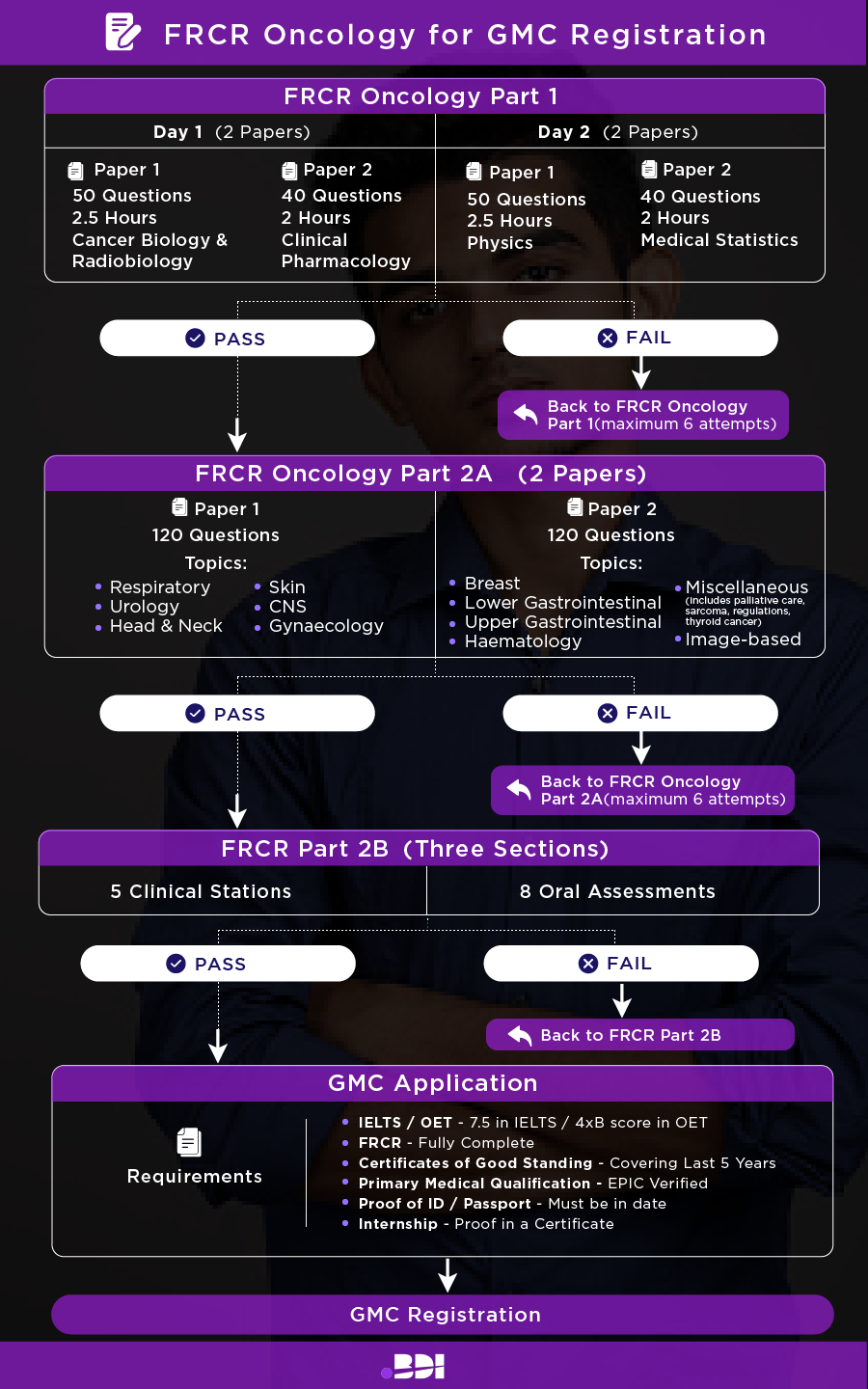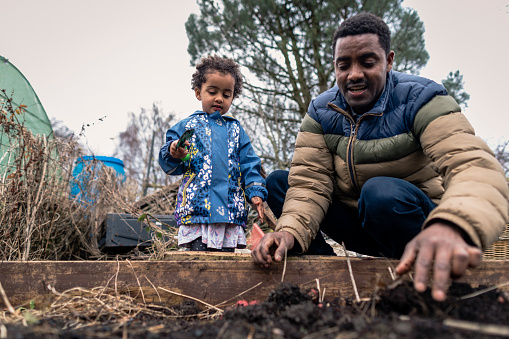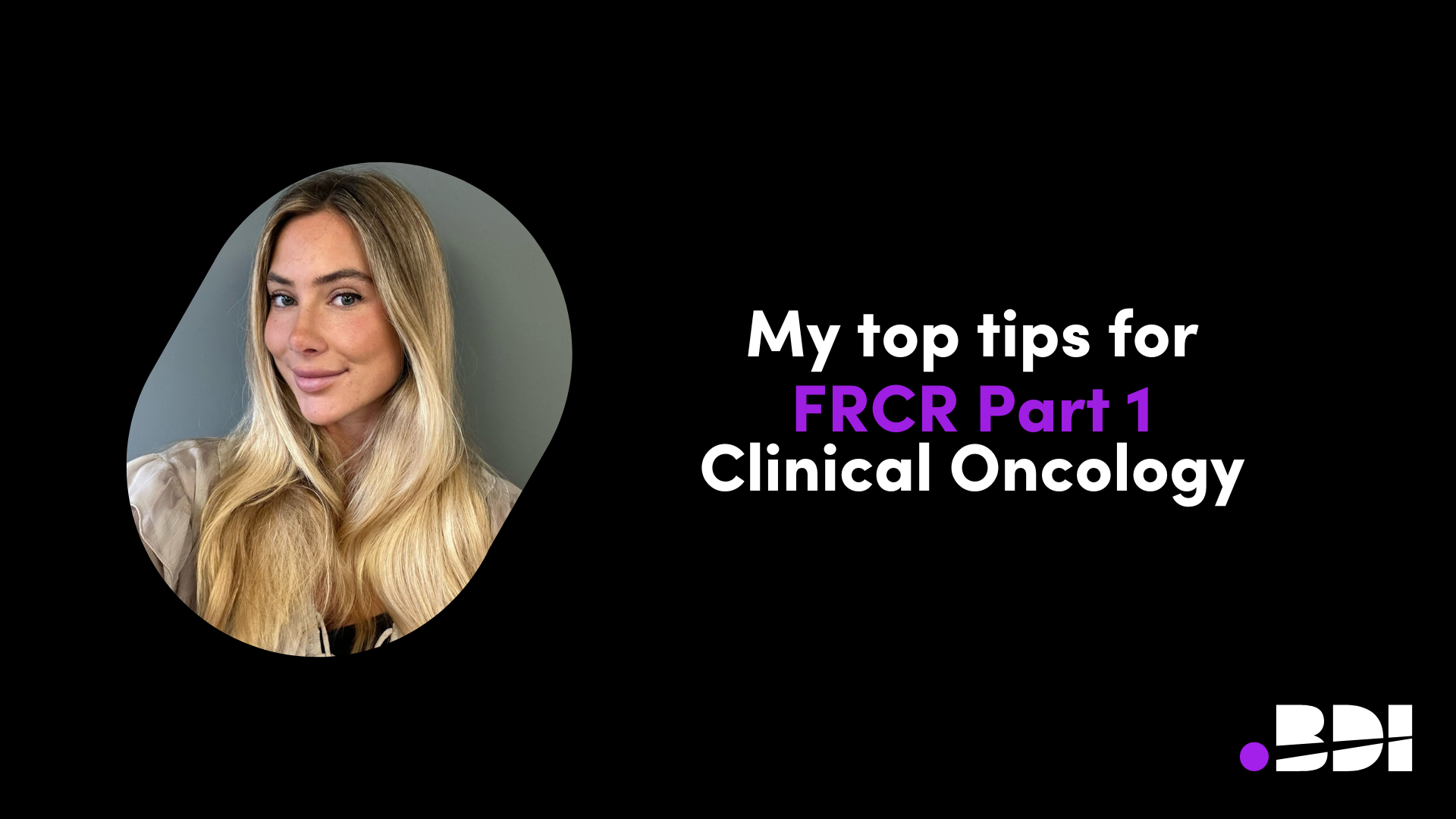
How FRCR Oncology Can Help to Secure GMC Registration
20 Mar, 202420 Minutes
Any doctor practising medicine in the UK must get on the GMC register. That includes any doctor, from junior positions to specialist medical doctors. As an overseas clinical oncologist wanting a role in the NHS, you need to find a route toward GMC registration, a popular one being FRCR (Oncology).
FRCR (Oncology) is an opportunity for international clinical oncologists aspiring to work in the UK at a senior level. The Royal College of Radiologists (RCR) offers this qualification to give aspiring medical professionals a clear route towards progressing as a Specialist or Consultant in the NHS.
The FRCR Clinical Oncology exam requires you to pass three exams. All three exams differ in structure and content, but all are designed to test your clinical understanding. The exams are based on a GMC-approved curriculum. This is to ensure that all medical professionals in the NHS have the best skills and knowledge possible, as well as the ability to perform on the job. The exams include FRCR Part 1, FRCR Part 2A, and FRCR Part 2B- CO2B.
Below is a video briefly explaining an overview of the FRCR (Oncology) exam structures. The rest of this blog will give you a deeper understanding of FRCR (Oncology). This will include a guide to exam structure, exam content, revision methods and using FRCR to secure GMC registration.
Cost of FRCR for Clinical Oncology
The cost of the exams varies based on members' prices and location. While the cost of the FRCR can be an expensive part of your medical journey, it is a critical aspect of an oncologist's GMC registration process.
| Exam/Location | Members 2023/24 Price | Non-Members 2023/24 Price |
| Frist FRCR (UK) | £184 per module | £223 per module |
| FRCR Part 2A (UK) | £508 | £647 |
| FRCR PART 2B (UK) | £663 | £844 |
| First FRCR (India and Hong Kong) | £193 per module | £245 per module |
| FRCR Part 2A (India and Hong Kong) | £464 | £591 |
| FRCR Part 2B (India and Hong Kong) | £633 | £844 |
The FRCR Part 2A can also be taken in Singapore for a member's price of £788 and a non-member's price of £1003. UK venues include Crewe, Edinburgh, Leeds, Belfast, London and Bridgend Wales.
FRCR (Oncology): Eligibility and How to Apply
The Clinical Oncology FRCR, like any other examination or qualification, have entry and eligibility requirements to participate in the exams.
Eligibility for FRCR Part 1:
- Applicants must have a previous medical qualification recognised by the GMC (Medical Degree).
- Applicants must have completed Courses in Physics, Medical Statistics, Cancer Biology and Radiobiology, and Clinical Pharmacology.
- Applicants must be registered as a Medical Practitioner.
- Applicants can have a maximum of six attempts of the full paper
The RCR's regulations around eligibility for the First FRCR state that there is no obligation for applicants to have already completed Clinical Oncology for the exam.
Eligibility for FRCR Part 2A:
- Applicants must have passed the First FRCR (Oncology).
- Applicants must have a minimum of three years of Clinical Oncology Training.
Eligibility for FRCR Part 2B -CO2B:
- Applicants must have passed the First FRCR and Final FRCR (Part 2A).
- Applicants must have a minimum of three years of Clinical Oncology Training.
How to apply for FRCR (Oncology)
To apply for the FRCR Oncology exams, you must sign up at the Royal College of Radiologists. Then, use their exam hub to send your application. The hub will allow you to complete all of your FRCR tasks. You will be asked to book a location and time from the available list for your examinations. You can also pay any relevant fees for your exams on the same website.
Getting on the GMC Register with FRCR (Oncology)
The FRCR (Oncology) exams are the ideal route for international oncologists wanting to find a senior position in the UK. With this qualification, you can apply for your GMC registration – provided you also pass the IELTS or OET to demonstrate your English language knowledge. With the right experience and the FRCR qualification behind you, you can start applying for senior roles in the NHS.
Experienced professionals who have previously progressed through the GMC registration process highly recommend the approved procedure. Here's what Zabihullah Stanikzai, MD, MSc Clinical Oncology, has to say:
"I strongly advise doctors who wish to join the NHS for their future development in this (Oncology) field to obtain their GMC registration. That way, they can start their journey to the NHS."
In the following sections, we will go into more detail about each FRCR (Oncology) exam. We'll discuss part one, including what to expect on the day and how to prepare for it.

FRCR Part 1- CO1
FRCR part one is a rigorous exam over two days, with 180 questions spread out over those days, covering 4 modules. The 180 questions are all single-best-answer questions. All questions on the paper have five opinions, and the applicant must choose which answer better suits their question or scenario.
There are four papers total, with two papers per day. The documents in this section are designed to test your clinical oncology knowledge and the topics underpinning oncology. To complete this exam, you should have a broad understanding of investigation and cancer patient management to pass this exam. This knowledge is essential to complete the GMC registration.
Here are the modules for each day:
Day one:
- Cancer Biology & Radiobiology: 50 questions, 2.5 hours
- Clinical Pharmacology: 40 questions, 2 hours
Day Two:
- Physics: 50 questions, 2.5 hours
- Medical Statistics: 40 questions, 2 hours
Paper 1 CO1 is marked by a computer with one point per correct answer.
FRCR Part 1- CO1 Content
- Cancer Biology and Radiobiology- Understanding tumour development and regression and changes within cancer cells.
- Physics- Being able to apply and identify physical principles in clinical oncology.
- Medical Statistics- Examining and analysing the statistics about clinical trials.
- The Pharmacology of Systemic Anticancer Treatments- Understanding the development, use, structure and other aspects of drugs used in cancer treatment.
FRCR Part 2A- CO2A
The second FRCR oncology exam involves two papers that have 120 questions on each. Much like Part 1, this section of the FRCR oncology exam is based on a single best-answer system. Each paper in this section lasts for three hours and is marked through a single-point system.
FRCR Part 2A- CO2A Content
The exam papers covered general clinical radiology and were created to test your knowledge of important topics that could be found within a two-year general training period. The issues you can expect in these questions include malignant diseases and patient management, mainly focusing on radiotherapy and drug therapy.
However, it's a good idea to have basic medical knowledge of other topics that may be relevant. These topics may include surgery, gynaecology, general medicine or any other area directly related to this section.
The content for paper one will include a set number of questions related to different types of tumours. Details on the types of tumours and the number of questions are detailed below:
- Respiratory- 24 questions
- Gynaecology- 24 questions
- Urology- 24 questions
- Head & Neck- 24 questions
- Skin- 12 questions
- CNS- 12 questions
For paper two, the content and amount of questions in that area are as follows:
- Breast - 24 questions
- Lower Gastrointestinal - 24 questions
- Upper Gastrointestinal - 12 questions
- Haematology - 12 questions
- Miscellaneous (includes palliative care, sarcoma, regulations, thyroid cancer)- 38 questions
- Image-based- 10 questions
FRCR Part 2B- CO2B
The last exam has recently changed to cover the new curriculum. FRCR part 2B-CO2B was altered this year to reduce the number of stations in the clinical exam, introduce a new marking scheme and changing the purpose of the current stations. Consistent updates to the FRCR Clinical Oncology exams mean you will be even more prepared for GMC registration and senior positions in the NHS.
The last exam includes two separate components: clinical and oral. The clinical component involves five stations, with the oral part including eight structured oral assessments. These final two sections are designed to test skills and knowledge that could not be tested on paper. These include testing your practical ability, clinical expertise and interaction with others.
Unlike the first two exams, this exam is practical and involves taking part in realistic clinical scenarios to test your skills. All stations are strictly timed and have a pair of examiners at each.
In total, you'll visit twelve stations that significantly emphasise your knowledge of the management of patients with cancer and malignant diseases—brushing up on your knowledge surrounding treatment drugs, radiotherapy and general medicine. FRCR Clinical and Oncology Exam Content:
- This section will require you to work with patients to detect signs of tumours.
- You will be managing patients by discussing diagnosis and prognosis professionally and ethically.
- You will be required to give your recommendation to patients for treatment.
- You will interpret and order appropriate investigations.
- Demonstrate your ability to be a kind, respectful and competent medical professional.
FRCR Oral Exam Content:
- You will be asked to answer questions and have clinically related discussions with your examiners.
- Each of the eight stations will be assessing your performance.
- Stations assess communication skills and your knowledge of clinical decision-making, managing caseloads, planning radiotherapy and issues related to diagnostic images.
- You will be required to interpret real-life scenarios to test your ethical and professional decision-making skills.
Using the Available Materials
The RCR and other websites have specific material to help you with your revision topics. These topics are freely available to assist you in revising the appropriate revision topics. Past papers and YouTube videos are also easily accessible and support different learning styles.
Revision materials are also available in the forms of:
- Sample questions for the oral exam are accessible here.
- Assessment demonstration videos to prepare you for the exam structure are available here.
- RCR-created exam guides and resources are available here.
- Examiners' reports from previous years are also available for you to utilise in your clinical oncology revision. These documents may help you to strengthen your structural knowledge of the exams. Reports are available for the first FRCR exam and the final FRCR exam.
Discovering how you retain information is possibly the most significant revision tip.
The RCR argues that it is best to collaborate with friends or colleagues to revise for this type of exam. It may be beneficial to test each other to identify your strengths and weaknesses surrounding your course, or you may prefer a different revision method like flashcards or independent study. Whatever your favourite revision process, choose the ones that work best for you and use the available revision tools.
Starting Early and Don't Cram
Each of the three exams and sections is based on different topics in clinical oncology. This means that each exam requires dedicated time to give you the best outcome. While it may be your usual revision style to cram information closer to the assessment date, these exams are detailed and specific. A general overview of clinical oncology will not be sufficient revision. The critical part here is to start early and ensure you use various revision resources.
Get Familiar with the Topics
As mentioned, all topics are available on the syllabus to give you the best chance of success. Take advantage of this knowledge and focus your revision on the content of your exam paper.
It's crucial to check out the syllabus to know what you'll be tested on. A preparation course can be handy, but it's not essential.

Recommended Reading for FRCR Clinical Oncology
Here are some books we recommend to get started:
- Molecular Biology of Cancer: Mechanisms, Targets, and Therapeutics – Lauren Pecorino
- A Beginners Guide to Targeted Cancer Treatments – Elaine Vickers
- Oxford Handbook of Oncology – Miranda Payne and Jim Cassidy
- Radiotherapy in Practice: Physics for Clinical Oncology – Sibtain, Morgan & MacDougall
On the Path to Successful GMC Registration
GMC registration is an essential step in your journey to pursuing a career in a highly skilled clinical oncology position in the NHS. The seemingly complicated path to securing GMC registration can be easier for aspiring clinical oncologists through FRCR (Oncology). This qualification, offered by the Royal College of Radiologists (RCR), has been designed to provide you with a clear progression route within the NHS. Upon completing the exams, an increase in senior positions will be open for you in the NHS.
The FRCR (Oncology) assessments have been designed based on the current oncologist trainee curriculum in the UK, which means that a successful applicant will have all the information and knowledge necessary for oncology positions in the NHS.
All three exams, both in format and content, are specially designed to assess your current clinical oncology knowledge. The exam eligibility criteria differ but are generally based on GMC-recognised medical qualifications and relevant clinical experience.
This guide also strongly highlights the correct preparation and use of the available revision materials. Each exam's content and structure variation means that a broad base of topics is covered. Revising correctly can contribute towards your successful completion of the FRCR (Oncology) exams and GMC registration.
Looking to Secure GMC Registration or Your Next Role Successfully?
At BDI, we specialise in every step of the UK NHS recruitment process. From Exam guidance and preparation tools to finding and applying for NHS careers, we can support you on your journey. The NHS thrives in a diverse environment and needs successful medical professionals like you to ensure the future of the National Health Service in the UK.
If you require more guidance regarding examinations or your journey to the NHS, contact us. We'll get back to you with materials, guides and job opportunities.


